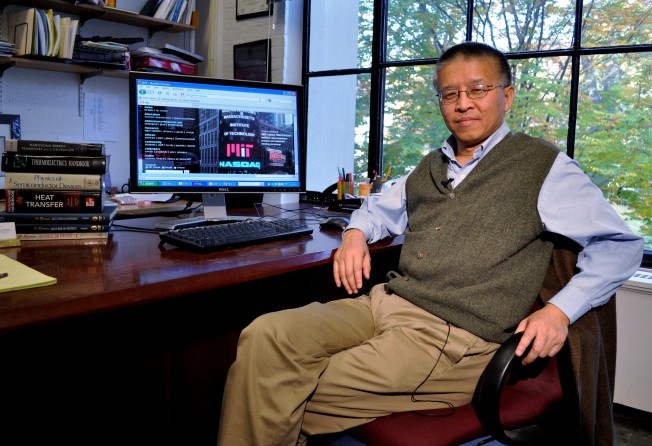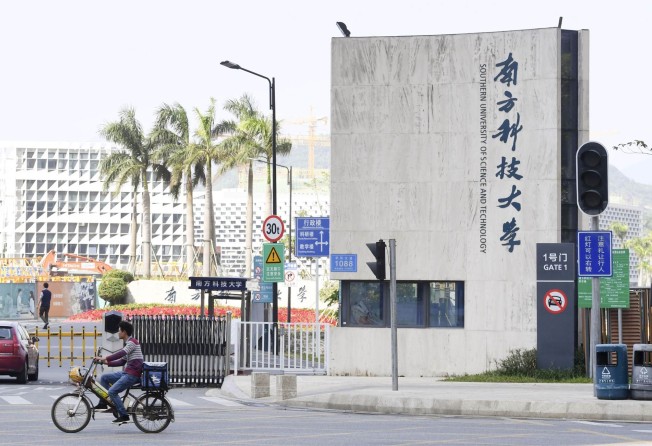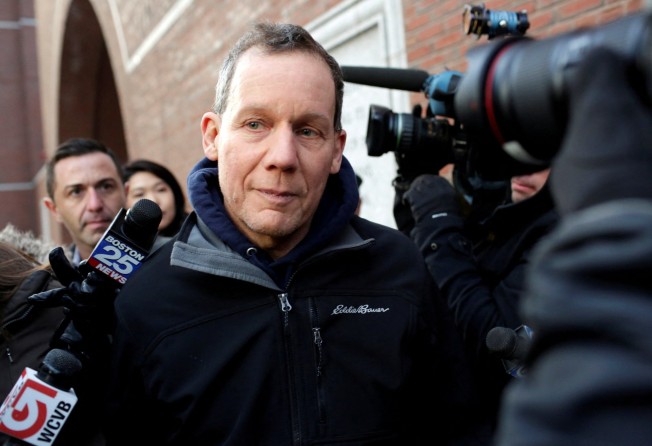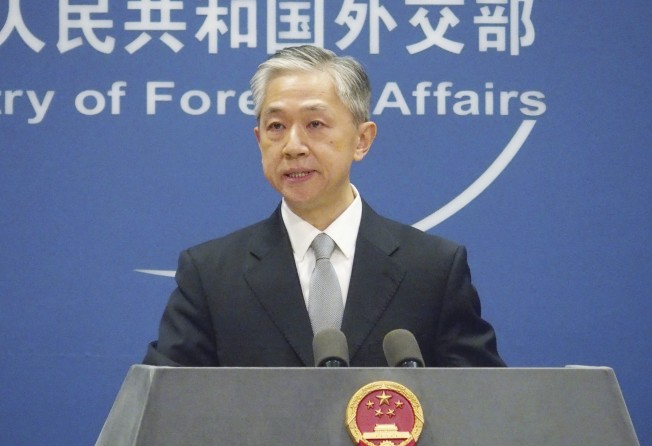
04:26
Chinese-American scientists fear US racial profiling

US prosecutors have recommended dropping the case against a Massachusetts Institute of Technology professor who is accused of masking his ties to China in federal research grant applications, according to a source close to the case.
The criminal action involving Gang Chen, a Chinese-born mechanical engineer and expert in nanotechnology, is one of several that have been brought under the controversial China Initiative launched by the Department of Justice in 2018.
Supporters say the initiative, intended to help stem the loss of scientific and technological expertise to China, is necessary to counter Beijing’s increasingly aggressive efforts to appropriate valuable intellectual property. But critics say that the programme has led to racial profiling and excessive prosecution.
“I remain optimistic that DOJ will be making the right decision. And this is not the only case,” said Jeremy Wu, founder of APA Justice, one of numerous Asian-American groups fighting to end the initiative.
“I hope through their continued review, they will give due consideration and recognise they have overreached.”
A Justice Department spokeswoman said on Friday that she could not confirm any reversal in the Gang Chen case, which was first reported by The Wall Street Journal and The Washington Post, citing sources.
A person close to the case said that many charges contained in the indictment, including allegations that Chen purposely omitted his China connections in grant applications, either did not stand up under scrutiny or were revealed as irrelevant.
In a pattern common to several China Initiative cases involving academics, prosecutors did not indict Chen for theft of trade secrets or industrial espionage – charges that are often difficult to win a conviction on – but rather for paperwork violations.
In particular, Chen, who became an American citizen in 2000, was accused of failing to disclose serving as an “overseas expert” for the Thousand Talents Plan – a programme Beijing began in 2008 to attract foreign technical expertise – when applying for a grant from the US Department of Energy. Chen sat on an advisory board of the Southern University of Science and Technology in Shenzhen.

The Chen case is the latest in a series of mixed outcomes for cases under the China Initiative, which the Biden administration has pledged to review. In December, Charles Lieber, ex-chairman of Harvard’s chemistry department, was convicted on five counts of tax evasion and failing to report ties to Wuhan University of Technology.
But last year Hu Anming, a University of Tennessee professor, was acquitted after a mistrial, and prosecutors have dropped charges against six other researchers.
Lieber’s case was unusual in that it involved a white man, which China Initiative defenders say shows that the policy is not racially motivated.
Others say that the Harvard name served Justice Department objectives by sending a chill through academia, leading scientists to shun colleagues of Chinese descent. Lieber’s sentencing is expected in the next several weeks.

Legal experts and activists note the disparity in how universities react when faculty are indicted in China Initiative cases. MIT fully supported Chen, even paying for his legal defence. Harvard kept Lieber nominally on staff but stopped paying him and financially supported witnesses who testified against him.
Other universities fired their professors as soon as they were accused without waiting for a legal decision, including the University of Kansas in the pending case of Feng Tao, its former chemical engineering professor who was similarly charged with failing to disclose ties to China in federal grant applications.
“I suppose it should all depend on the facts of the case, whether there is a wilful effort to circumvent funding or national security or trade secret regulations,” said Mark Cohen, a senior fellow with Berkeley Centre for Law and Technology.
But the initiative has had a chilling effect on universities, which tend to publish their research openly and thrive on cross-border cooperation.
“International collaboration is part of the antidote in competing with China,” Cohen said. “If we chill it down too much, it will hurt our ability to deal with this emerging challenge. I believe it has already.”
Resources are also a factor in how universities choose to respond, others said. “MIT has said, ‘We’re going to have his back.’ But they have a lot of money,” said Margaret Lewis, a Seton Hall University law professor.
“If you have a small cash-strapped university and they’re suddenly faced with hundreds of thousands in legal bills, that’s like, ‘Yeah, right.’”
Asian-American groups have called on universities to adopt a more unified stance toward scientists accused under the initiative.
So far they have received significant support from faculty – with some 2,600 from 230 institutions voicing their opposition to the FBI-enforced initiative – but a more tepid response from university deans, presidents and administrators.
In its latest bid to spur vigilance in academia, the FBI has scheduled a symposium next month with university presidents, chancellors, provosts and other top officials in the New York area for “updates on how universities and the US federal government are working together to protect and secure the American research enterprise”.

Brian Kelly and Rob Fisher, attorneys with the Nixon Peabody law firm representing Chen, declined to comment.
On Friday, Beijing assailed the initiative, with Foreign Ministry spokesman Wang Wenbin calling it “essentially a tool for anti-China forces in the US to abuse the concept of national security to contain and suppress China”.
He added that Washington should “stop taking China as an imaginary enemy”.
Wu, who expects the Justice Department to come out with the results of its China Initiative review in the next few weeks, said that the Chinese-American community is not expecting a dramatic turnaround in the agency’s approach any time soon even as it continues to speak out.
Justice has often been elusive for Chinese- and Asian-Americans in the US, he said, dating from the Chinese Exclusion Act of 1882, the World War II detention of Japanese-Americans in camps and the 1950s “red scare” demonising China.
“We don’t have any false optimism,” Wu said. “We will continue to do what we have been doing. We are the little engine that could.”